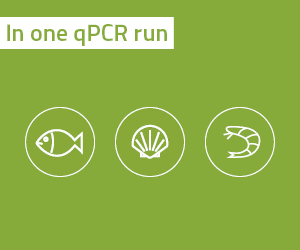BET 1-Day Essentials...
Low Endotoxin Recove...
Plant-based Milk Alternatives: Nutritional Value, Food Safety Issues.
: 13 Mar 2025
Sector : Food & Beverage
Type : Webinar
Plant-based milk alternatives have gained immense popularity over the last decade, offering valuable substitutes for dairy milk for individuals with dietary restrictions — whether for ethical reasons, like veganism, or safety concerns, such as lactose intolerance.
However, these plant-based products can also pose certain risks, including allergens, cross-contamination, and potential chemical and microbiological contaminants.
Join us for an insightful webinar where experts will discuss these important topics and share their insights on navigating the plant-based milk landscape.
Dr. Sarah E. Nájera Espinosa - London School of Hygiene and Tropical Medicine
"The role of plant-based drinks for health and nutrition."
- The nutrient content of plant-based drinks varies by brand and type.
- Generally, they have lower energy density, saturated fat, and total sugar but similar sodium levels to dairy milk.
- Legume-based drinks are high in fiber, low in energy density, and low in saturated fat, aligning with healthy dietary recommendations.
- Evidence on health impacts is mixed, with some drinks associated with micronutrient deficiencies.
Dr. Bert Popping FOCOS - Food Orbit
"May contain chaos: When plant-based proteins test your patience."
- Regulatory and Labelling Issues: Plant-based milk alternatives are often labeled as "vegan," but this does not guarantee they are milk-free. Regulations primarily apply to ingredients, allowing for precautionary allergen labeling (PAL), but do not fully address accidental contamination. FAO/WHO identified Allergen Risks: The Codex Alimentarius and FAO/WHO guidelines provide allergen risk assessments and thresholds for major allergens. However, current European legislation focuses on ingredients rather than cross-contamination.
- Growth of Plant-Based Milk Alternatives: The plant-based milk market has a significant value (billions of Euros) and is forecasted to see substantial growth over the coming years
- Main Issues of Plant-Based Milk-Alternatives in Relation to Food Allergens: Increasing Prevalence, Cross-Contamination, and Adulteration: There is an increasing prevalence of allergies to ingredients like soy and tree nuts, which are commonly used in plant-based alternatives. Cross-Contamination and Adulteration: Risks arise from cross-contamination in manufacturing facilities and potential adulteration of plant-based products with undeclared allergens.
- Analytical Challenges in Allergen Detection: Methods such as ELISA, PCR, and mass spectrometry are used to detect allergens, but all have limitations. Not all tests are suitable for every allergen, leading to risks of false negatives.
- What can and should Food Manufacturers watch out for and do to Minimise Risks to their Business?
Dr. Chrysanthi Champidou - Nestlé
“Microbiological challenges associated to plant-based milk alternatives”
- Microbiological risks in plant-based milk alternatives
- Raw materials and sources of contamination
- Safety and quality control
- Good Manufacturing Practices (GMP), monitoring and risk management
Prof. Dr. Michael Rychlik - Technical University of Munich
"Risks of plant-based milk alternatives by mycotoxins and heavy metals"
- Plant raw materials used to produce drinks contain, rather specifically mycotoxins and heavy metals
- Replacing milk with plant drinks significantly increases mycotoxin exposure
- Infants and toddlers are particularly at risk
- There is still a lack of data to accurately assess the risks
Register now to secure your spot and stay informed about the latest trends and safety considerations in this growing market. We look forward to seeing you!
After the event, upon request, you will receive an E-CERTIFICATE FOR PARTICIPATION.
If you miss the live event, visit www.affidiajournal.com and watch it on demand (registration is required).
BET 1-Day Essentials...
Low Endotoxin Recove...





